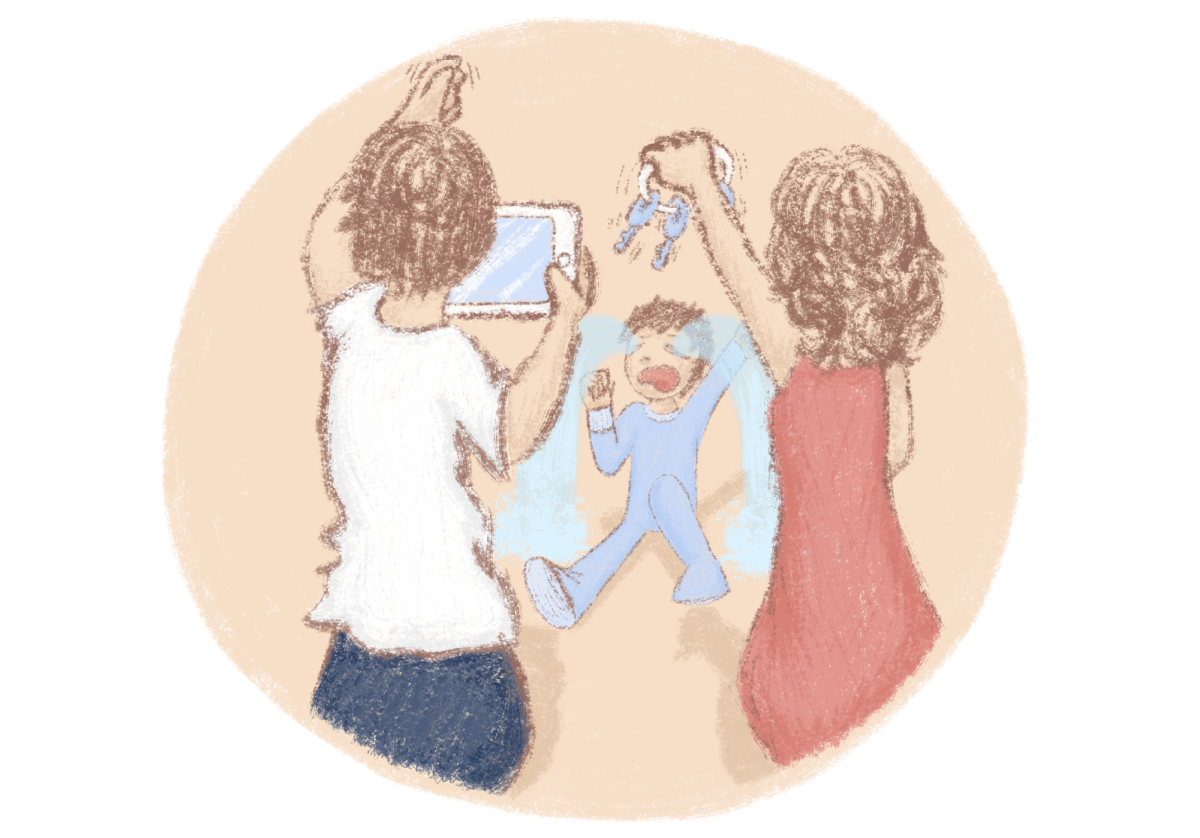The internet stood shocked after it was revealed that matriarch of the family-vlogging 8 Passengers YouTube channel, Ruby Franke, had been arrested and charged with six counts of felony child abuse. The YouTube channel, created in 2015, accumulated over two million subscribers before its deletion earlier this year. The channel blew up for its raw content of the family’s everyday lives, as it showed their morning routines, parenting styles, milestones and discipline techniques. It is clear, however, that the six Franke children were experiencing much more behind the camera than the channel let on.
Abuse on and off camera is not unheard of within the world of family vlogging. The popular DaddyOfFive channel earned over 84,000 subscribers before the channel was taken down following a lengthy legal battle over custody of two of the couple’s children. Mike and Heather Martin, the couple behind the channel, were sentenced to probation for child neglect and lost custody of two of their five children after publishing several prank videos where they subjected their children to emotional torment and distress. In one instance, the Martins filmed themselves screaming at their children for spilling ink while the children cried. In reality, however, the ink was secretly invisible ink that the parents had set up as a prank to film their children’s reactions.
Machelle Hackney, leader of the Fantastic Adventures YouTube channel, which had over 800,000 subscribers, was charged with seven counts of child abuse, five counts of unlawful imprisonment and child neglect, and other charges. The children told police that they were kept out of school to film videos and punished for forgetting a line on camera or messing up during a video. The most common forms of punishment were pepper spraying or locking the children in a closet without access to food and water.
Myka and James Stauffer, whose combined channels totalled over 1 million subscribers, faced immense backlash after announcing they were rehoming the autistic Chinese boy they had adopted after three years of filming and posting about him. The couple had profited off of videos surrounding his adoption process, tantrums and medical scares.
It’s no exaggeration that this style of family vlogging has gained a cult following. The Pew Research Center in 2019 found that “videos with children who appear to be under the age of 13 received three times as many views as other videos.” The popularity of children on social media has made family vlogging an incredibly lucrative business, causing more parents to join in. Ryan Kaji, the 9-year-old who posts videos on Ryan’s World channel, landed No. 1 on Forbes’ list of highest-paid Youtubers in 2020. Ryan is estimated to have made $29.5 million from his channel and subsequent brand deals.
Contrary to movie and television industries, U.S. labor laws do not apply to children working on the set of their parents’ YouTube videos. For example, minors working in the traditional entertainment industry are subject to compensation for their work, instead of their earnings going to their parents. The same protection is not applied to child YouTube stars.
In response to this, Illinois made history this year by becoming the first state to pass legislation protecting earnings made by child influencers by requiring parents to set aside a percentage of earnings into a trust for their children to use in the future.
Another issue with the rising popularity of children on the internet is the lack of formalized consent laws for children appearing in YouTube videos. The Children’s Online Privacy Protection Act, or COPPA, came into effect in 1998 to limit the collection of information on kids under the age of 13 without parental consent. This, however, does not apply to children appearing in their own parents’ monetized content, as their parents are the people sharing information about them online.
To combat instances of outright exploitation of minors online, France adopted a law that “aimed at regulating the commercial exploitation of the image of children under the
age of 16 on online platforms,” in October 2020. This law required parents who were aiming to monetize videos of children under 16 to request permission first. Another way France attempts to reduce child online exploitation is by granting all minors the right to erasure, where minors can request that content or data shared on an online platform be taken down. Unfortunately, the only state in the United States that explicitly gives minors the right to erasure is California.
Aside from legal complaints, family vloggers have faced backlash for sharing private or potentially traumatic experiences on the internet. YouTubers gain views for shock factor, leading parents to film their children in the emergency room, post videos of injuries or accidents, and share embarrassing stories about their kids against their will.
YouTube doesn’t care about kids
YouTube has come under fire for their potentially damaging algorithm. Some parents innocently upload videos of their children playing or dancing to easily share with friends and family, but YouTube’s algorithm turns this pure action into a dangerous one. YouTube’s algorithm functions to gain viewership and subsequently ad revenue by steering content towards a group specifically receptive to that kind of video. Unfortunately for the children posted, this algorithm seems to be targeting pedophiles as well by sending these home videos their way.
In response to the criticism for their algorithm, YouTube temporarily disabled the comments on channels that feature minors in February of 2019, but took little more action to address the serious algorithm issues. While pedophiles are now unable to make predatory comments on videos of children, the issue runs much deeper. Researchers report in a New York Times article in 2019, that YouTube’s algorithm often referred viewers to home videos only after they watched “sexually themed content.” In isolation, each video may seem innocent, but the larger picture of the algorithm shows a scarier story: YouTube is leading pedophiles to their newest victims.
While YouTube’s policy does not allow children under the age of 13 on the platform, it’s obvious that this has never been enforced. Children under the age of 13 are not allowed to have their own channels, but some of the most successful content creators on the platform are families who share content of their children well under the age of 13.
The long term consequences
Unfortunately, the internet endures forever. A video posted in a child’s early years can be found by future employers, friends and enemies. Not only are there safety risks involved with oversharing on the internet, but it can become uncomfortable.
“Additionally, for kids whose parents do not have a good sense of boundaries and of appropriateness, sometimes the commercially sharented content can be pretty uncomfortable or even, in more extreme cases, constitute more abuse or neglect,” Leah Plunkett, author of Sharenthood: Why We Should Think Before We Talk About Our Kids Online, said in an interview with Newsweek.
Since family vlogging is a relatively new phenomenon, the long-term psychological effects of being exposed to the internet in such a way are unknown. It is important that parents navigate what to share, or not to share, on the internet with extreme caution.
Some channels, such as the EhBee Family channel, which has over 10 million subscribers, understand the implications of posting their children online. The mother running the channel has hidden the real names of her children, referring to them as Miss Monkey and Mr. Monkey in videos. Even so, the children have still been robbed of a normal childhood by having to interact with fans in public and regularly produce content.
We are a part of the problem
While family-themed content is popular, failure to recognize the abusive and exploitative conditions in which these videos are filmed incentivizes more families to participate and subject more kids to the same fate. As members of the online community, we are complicit in the actions happening behind the camera. It is imperative to be mindful of the media we consume and the lasting effects it has on the people around us.









